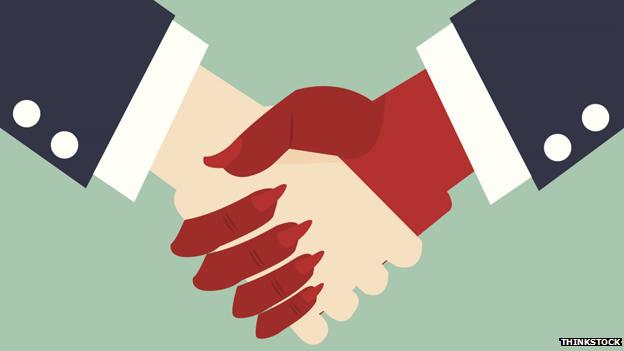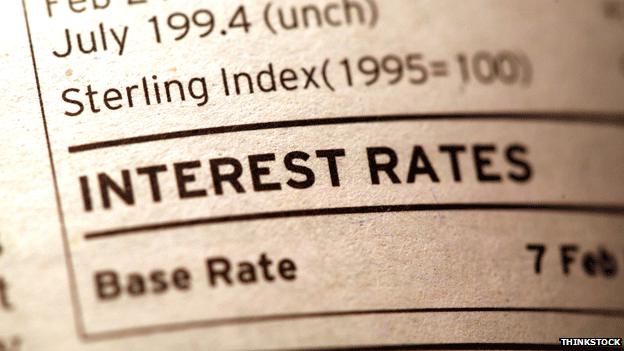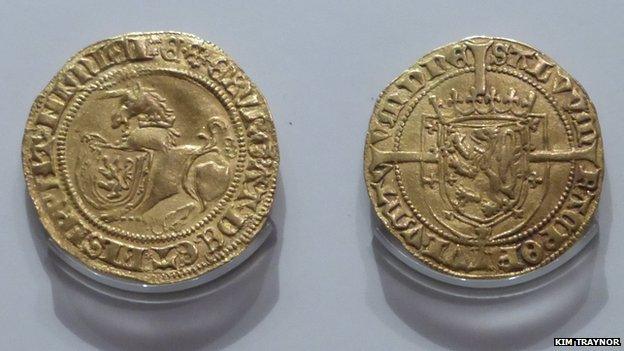Daily question: Is the pound the best currency for Scotland?
- Published
As the people of Scotland weigh up how to vote in the independence referendum, they are asking questions on a range of topics from the economy to welfare.
In this series, we are looking at those major questions and by using statistics, analysis and expert views shining a light on some of the possible answers.
Here we look at currency and find out why sterling is at the heart of the debate. The Scottish government says it will continue to use the pound post-Yes, but the UK government, supported by the other Unionist parties, says it cannot.
Do you have a referendum question? Let us know by....
Emailing newsonlinescotland@bbc.co.uk.
We can also be found on Twitter @bbcscotlandnews, external
And on Facebook, external.
BBC website users Frank Millar, Alexander Hampton, Robert Anderson, Gary McAlea, Mark Miller and Allan Sutherland all sent in questions about the currency.

So what is a currency union?

It's when countries with different political systems decide to share a currency. The Euro is the biggest example of this, but it's perhaps not the best comparison as so many countries were involved with widely different types of economy. Greek's rural islands are a long-way from Germany's industrial powerhouses. Scotland and the rest of the UK's economies are much more alike.

What are the pros and cons of sharing the pound?

There is an understanding when you join a currency union that you give up some of your economic power. Scotland wouldn't be able to change its interest rate, even if the economic picture in Scotland was different to the rest of the UK. It also means that limits may be placed on the amount it can spend in its budgets - that's to help prevent situations like the Eurozone crisis.
Currency Unions can also fall apart if people feel that one country is much stronger than the other, as we saw in the Czech Republic and Slovakia in 1993.
On the plus side it would make life easier for citizens of Scotland not to have to change currency; it would make life easier for businesses on both sides of the border who would only have to operate in one currency, and it would mean the Bank of England would still be the lender of last resort.
That would mean that Scotland's large financial services sector of banks, insurance and life assurance companies would still be supported by an organisation with much bigger resources than the Scottish government.

But will Scotland be able to use the pound?
Alistair Darling: "If you don't get a currency union what is it we're going to have instead?"
The currency arguments were played out in full during the STV debate between Alex Salmond and Alistair Darling on 5 August.
But the foundation of disagreement can be found by going back to February this year when the Conservatives, Labour and the Liberal Democrats made a joint statement saying that if Scotland votes for independence, they would not be able to still use sterling - whichever party was running the UK.
The Chancellor George Osborne believed that would be the end of the issue, and called on the Scottish government to announce a Plan B for the currency.
However, the response came back that the statements were "bluff and bluster" and that if a Yes vote happened a more practical decision would be reached.
There is simply no way of knowing whether that is true or not. It is possible that after negotiation the UK may agree to share the pound. But for now, this central issue of the referendum is the one with the least clarity for voters.
The pound is often said to be the oldest living currency in the world and has accompanied Britons through much of their march through history.

So what are the other options?

If it turns out that Scotland isn't able to use the pound in a formal currency union, there are a few other options. They include....
Keep the pound - Countries across the world do this with the dollar, like Hong Kong and Panama. They call it "dollarization", so this option has become known as "sterlingization". It has all the advantages of simplicity, but would mean Scotland having no control at all over interest rates and other monetary policy decisions. It would be a little like being on a roller coaster, you're in for the ride even though you don't have any access to the controls.
New currency - Way back in history Scotland used to have its own currency. It would mean the Scottish government would have total control, but would be a huge change and an unknown quantity so it might not be trusted. There is a fear that people might pull their money out of the new Scottish currency and move it into the rest of the UK, which would be seen as a safer bet. Scotland would also be totally responsible for bailing out its own banks and savers should anything go wrong. Some pro-Yes backers, including Jim Sillars and Dennis Canavan are in favour of a Scottish currency.
Different currency - Could it be the the Euro or even the dollar? The Euro might not be all that popular these days, but once-upon-a-time Alex Salmond was keen for Scotland to join the Euro, describing Sterling as a "millstone around Scotland's neck". Although the Euro has weakened dramatically in recent years, it's unlikely to stay that way forever. Others suggest Scotland should use the dollar, and become a petro-economy. That's because a big chunk of Scotland's economy depends on oil and gas - an industry which operates in US dollars - and that it might not be the wildest idea in the world to adopt the dollar as its currency.
The White Paper, external reminds voters that even if a formal currency union was created between Scotland and the rest of the UK "it would of course, be open to people in Scotland to choose a different arrangement in future".